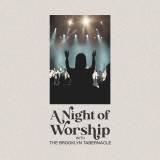Roles of Music in a Worship Service

One of the many misnomers in the realms of worship is the tendency for
people to use the term “worship” as a synonym for the musical aspect of
a worship service. When in fact, music actually has many roles in a
service of worship outside that of sung prayer. Here are the 10 roles of
music in services of worship.
1. Involving
Modern worship services sometimes are more of a show than they are interactive experience. Worshipers are often sitting in the pews or chairs and encouraged to simply watch what is happening on the stage. In contrast to that, music invites participation; it offers every person in attendance a way to get involved: singing, clapping even moving to the sound.2. Emotive
Music gives people a chance to express what words cannot. In life, a groan or a laugh can mean far more than words to describe our inner thoughts and hearts. Music touches our emotions in such a way that we are literally able to feel our communication with God.3. Icebreaker
For a visitor to feel a little less like a visitor, all they need is to hear something that makes them feel at home. That might be a familiar hymn or a Christian song they recognize from the radio, but either way, walls start to come down when someone can identify in a strange setting.4. Unified Prayer
Some churches pray the Lord’s Prayer together or recite the creeds, but many do not. When a congregation sings the lyrics of a song they audibly pray the same words at the same time. And unified prayer in a congregation is a powerful thing.5. Enriching
We go to museums to be moved by art. We go to concerts to have life-enhancing experiences. Music in a service of worship gives the opportunity for a deeper, broader and fuller way to be alive and fully human.6. Signal
Music tells us when the service is about to start, when the sermon is about to end, when we should be scrambling to finish up our communion wafer, and what type of mood we should be feeling. It is also something that marks our calendars: winter wouldn’t be winter without Christmas carols, a wedding wouldn’t feel complete without Pachelbel’s Canon in D, and a funeral wouldn’t have a certain amount of closure without “Amazing Grace.”7. Enjoyment
A service of worship full of only sermons and talking and be a bit dull. Music helps us enjoy our time together as we worship God.8. Space Filler
A little silence is not such a bad thing, but music can infuse those various silent moments with beauty and inspiration. Think of offertory music and communion songs.9. Trigger for Intimacy
People are often surprised in moments of beauty and inspired to worship God. However, they are much more likely to connect with God in pre-set conditions—putting themselves in settings and surroundings that are conducive to an intimate moment with the Father. Music is an emotional and rational trigger for people to stop and consciously decide to take a moment to get deeper in communion with God. A simple reminder, if you will.10. Artistic Expression
Along with singing, the people in your congregation have an opportunity to express themselves artistically with music. Some will take part in the worship praise team, some will play handbells, some will join the a capella group, and some will use music to score the video announcements they put together on their Macbook. Music lets people create devotional art which invites others to join in praise of the Father.Source: Worship Leader
Roles of Music in a Worship Service
 Reviewed by Admin
on
11:07:00 AM
Rating:
Reviewed by Admin
on
11:07:00 AM
Rating:
 Reviewed by Admin
on
11:07:00 AM
Rating:
Reviewed by Admin
on
11:07:00 AM
Rating:
















Post a Comment